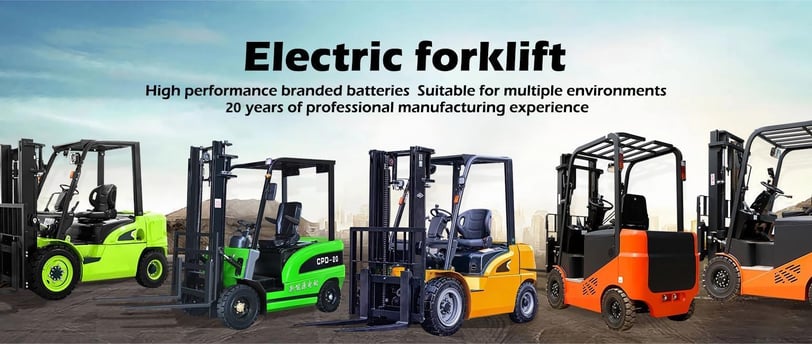Welcome to Forklifi
Comparing Electric vs. Gas-Powered Forklift Trucks: Pros and Cons
In the realm of material handling equipment, forklift trucks stand as indispensable workhorses, streamlining operations across warehouses, factories, and distribution centers. Among the various types available, electric and gas-powered forklift trucks reign supreme, each offering unique advantages and drawbacks. In this article, we'll delve into the pros and cons of both options to help you make an informed decision for your specific needs.
### Electric Forklift Trucks:
Pros:
1. Environmental Friendliness: Electric forklift trucks are renowned for their eco-friendly operation. They produce zero emissions during use, contributing to cleaner indoor air quality and reducing the carbon footprint of your operations. This makes them ideal for indoor applications and environments where emissions regulations are strict.
2. Lower Operating Costs: While the initial purchase price of electric forklifts may be higher than their gas-powered counterparts, they typically boast lower operating costs over their lifespan. Electric forklifts require less maintenance, as they have fewer moving parts and no engine fluids to change regularly. Additionally, electricity is often cheaper than gasoline or diesel fuel, leading to long-term cost savings.
3. Quieter Operation: Electric forklift trucks operate significantly quieter than their gas-powered counterparts, making them well-suited for noise-sensitive environments such as retail spaces or residential areas. Their quiet operation enhances workplace safety by reducing noise-related distractions.
Cons:
1. Limited Run Time: The primary drawback of electric forklifts is their limited run time on a single battery charge. While advancements in battery technology have extended their operational hours, electric forklifts still require periodic recharging, which can interrupt workflow if not managed efficiently.
2. Initial Investment: Electric forklifts typically have a higher upfront cost compared to gas-powered models. However, as mentioned earlier, this cost is often offset by lower operating expenses over time.
### Gas-Powered Forklift Trucks:
Pros:
1. Greater Mobility: Gas-powered forklift trucks offer greater mobility and flexibility, as they do not rely on battery charging stations. They can operate continuously as long as there is fuel available, making them ideal for outdoor applications or environments without easy access to electrical outlets.
2. Higher Power Output: Gas-powered forklifts generally have higher power output compared to their electric counterparts, allowing them to handle heavier loads and traverse rough terrain with ease. This makes them suitable for heavy-duty applications such as construction sites or lumber yards.
Cons:
1. Emissions: Unlike electric forklifts, gas-powered models emit exhaust fumes during operation, which can compromise indoor air quality and contribute to environmental pollution. They may not be suitable for enclosed spaces or environments with strict emissions regulations.
2. Increased Maintenance: Gas-powered forklifts require more frequent maintenance compared to electric models, as they have more complex engines and require regular refueling. This can result in higher ongoing maintenance costs and downtime for servicing.
In conclusion, both electric and gas-powered forklift trucks offer distinct advantages and disadvantages. The choice between the two depends on factors such as your specific application, budget, environmental considerations, and operational requirements. By weighing the pros and cons outlined in this article, you can make an informed decision that maximizes efficiency and productivity while minimizing environmental impact.


